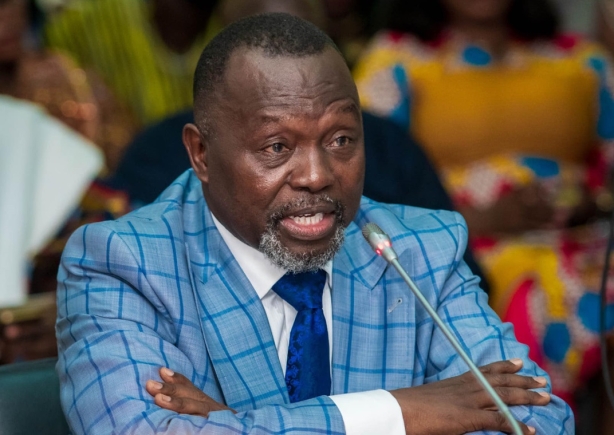The Attorney-General and Minister for Justice, Dr. Dominic Ayine, has offered a comprehensive explanation for the government’s decision to drop the long-running criminal case against former Finance Minister Dr. Kwabena Duffuor and seven others, citing progress in asset recovery and the complexity of the legal issues involved.
Speaking at a sectoral briefing on Monday, Dr. Ayine confirmed that the case, The Republic v. Kwabena Duffuor & 7 Others (CR/0248/2020), was formally discontinued through a nolle prosequi—a legal declaration to halt prosecution—after the accused parties proposed a structured repayment deal amounting to GH¢2 billion, out of a revised total liability of GH¢3.3 billion.
According to the Attorney-General, the agreement was reached following months of negotiation and is designed to facilitate the recovery of public funds lost during the collapse of UniBank, which occurred during Ghana’s financial sector reforms.
He stated that by a letter dated May 7, 2025, the accused persons proposed a settlement plan involving direct asset transfers worth GH¢800 million to UniBank, currently under receivership, and cooperation in recovering GH¢1.2 billion from third-party beneficiaries who had received payments under their instructions.
So far, landed properties valued at GH¢844 million have already been handed over to the bank, surpassing the pledged amount. Additionally, GH¢500 million has been recovered from third parties, with the remaining GH¢700 million expected within the next 18 months, along with any proceeds from asset sales.
Dr. Ayine outlined several reasons behind the government’s decision to discontinue the case. The receiver of UniBank had confirmed that prior to the bank being placed under official administration, its financial records were overstated by GH¢2.1 billion through fictitious entries.
A separate GH¢300 million civil claim, filed by the receiver in 2019, is still active under the ongoing insolvency process.
He also noted that the legal proceedings had dragged on for over six years, delivering limited results due to the complexity of the case and difficulties in tracing assets early on.
Continuing litigation, he explained, risked delaying or reducing net recoveries and undermining the primary goal of the financial sector reforms, which was to recover lost public funds and stabilize the banking system.
The Attorney-General further clarified that prosecution was never an end in itself, and the government had established a 60% recovery threshold as a condition for reconsidering the need for criminal proceedings.
He emphasized that being charged with causing financial loss to the state does not automatically mean the accused personally took public funds, but rather that their actions or decisions may have indirectly led to financial loss.
The discontinued case was among several prosecutions initiated during Ghana’s financial sector clean-up between 2017 and 2019, which led to the collapse of multiple banks and financial institutions.








